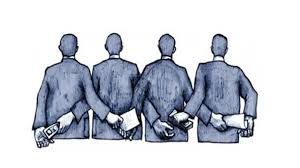In HBO’s peculiar limited series, “The Regime,” viewers are transported to a fictional European country reminiscent of a teenager’s whimsical vision of dictatorship. While set in a fictional land in “Middle Europe,” the show cleverly integrates references to real despots and failed states, offering a satirical exploration of authoritarianism.
Chancellor Elena Vernham: A Complex Character
Portrayed brilliantly by Kate Winslet, Chancellor Elena Vernham is far from the archetype of dictators like Hitler. Instead, she embodies a blend of narcissistic ruthlessness and vulnerability, torn between power and a desperate need for affection. Winslet’s portrayal adds depth to the character, revealing her complexities beyond the typical dictator stereotype.
The Creative Process Behind “The Regime”
Creator and co-writer Will Tracy delved into extensive research, reading numerous books on autocracies and totalitarian regimes to craft the six episodes of “The Regime.” However, the series transcends historical accuracy, embracing elements of satire, slapstick, and comedy reminiscent of classic films like “Duck Soup” and “The Mouse that Roared.”
Breaking from Tradition: A Female Dictator
One of the distinctive features of “The Regime” is its departure from historical norms by placing a woman at the helm of power. Chancellor Vernham’s portrayal challenges traditional gender roles, depicting her as a neurotic, insecure leader navigating the complexities of leadership amidst 21st-century anxieties about powerful women.
Real-Life Parallels and References
While “The Regime” unfolds in a fictional setting, it draws inspiration from real-life figures and events associated with authoritarian regimes.
Women in Authoritarian Leadership
The series reflects on the role of women in authoritarian regimes, highlighting figures like Jiang Qing and Imelda Marcos, who wielded considerable influence alongside their male counterparts. Chancellor Vernham’s character echoes themes of power dynamics and influence observed in historical conjugal dictatorships.
Historical References: Elena Ceausescu and Others
The portrayal of Elena Ceausescu, wife of Romanian dictator Nicolae Ceausescu, offers insight into the dynamics of power within such regimes. References to other despotic leaders, such as Slobodan Milosevic, add depth to the narrative, drawing parallels to real historical events.
Filming and Production Insights
Capturing the Essence of “The Regime”
Filmed predominantly in Vienna, the series captures the grandeur and opulence associated with authoritarian regimes. Locations like the Schönbrunn Palace serve as the backdrop for Elena’s lavish palace, reminiscent of the Palace of the People in Bucharest, Romania.
Wry References and Satirical Elements
“The Regime” incorporates subtle nods to real-world politics and culture, including references to British institutions and historical figures. Despite its fictional premise, the series offers commentary on contemporary issues, from Brexit to populism.
A Unique Blend of Satire and Social Commentary
“The Regime” stands out as a thought-provoking exploration of authoritarianism, blending satire with social commentary in a captivating narrative. Through its engaging characters and witty storytelling, the series invites viewers to reflect on power, gender, and the complexities of governance in today’s world.




